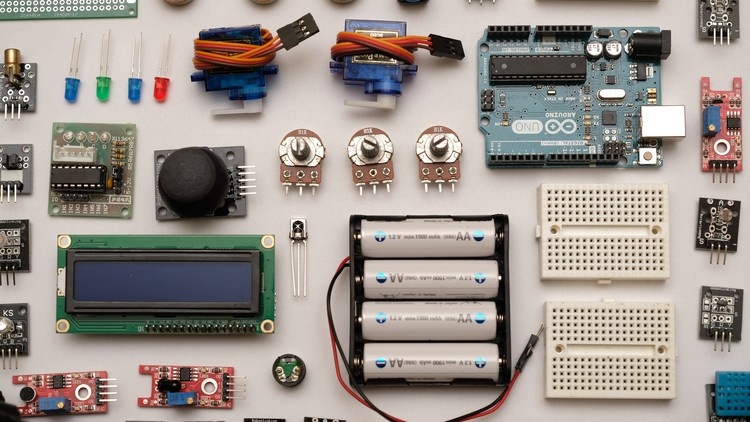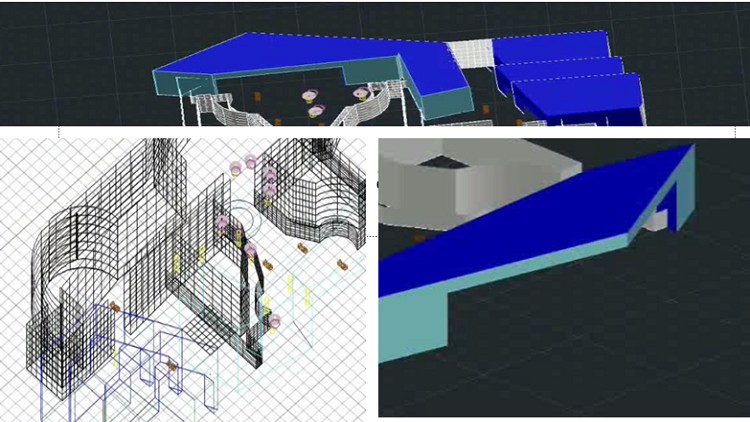Description
This course is designed to introduce beginners to the fundamental concepts of electrical engineering. You’ll start with an overview of basic electrical components such as resistors, capacitors, and inductors, learning how they function in circuits. The course covers essential topics like Ohm’s Law, Kirchhoff’s Laws, and circuit analysis techniques. You’ll explore both AC and DC circuits and learn how electrical power is generated, distributed, and used in everyday applications. Additionally, the course touches on more advanced topics such as semiconductors, transistors, and basic electronics. Through practical examples and hands-on exercises, you’ll develop a clear understanding of how electrical systems work and their importance in modern technology. This course is ideal for anyone interested in electrical engineering or looking to strengthen their knowledge of basic electronics.
Welcome to “Electrical Engineering Basics”! This course is designed to introduce you to the fundamental concepts and principles of electrical engineering. Whether you are pursuing a career in the field or simply want to understand the basics, this course will provide you with a solid foundation in electrical engineering concepts, components, and applications.
Syllabus
Week 1: Introduction to Electrical Engineering
- Overview of the course and key concepts
- Importance of electrical engineering in modern society
Week 2: Basic Electrical Concepts
- Voltage, current, resistance, and power
- Understanding the units of measurement (Ohms, Amperes, Volts, Watts)
Week 3: Circuit Analysis Fundamentals
- Ohm’s Law and its applications
- Kirchhoff’s Laws: current and voltage laws
Week 4: Components of Electrical Circuits
- Overview of basic components: resistors, capacitors, inductors
- Introduction to diodes and transistors
Week 5: AC vs. DC Circuits
- Understanding alternating current (AC) and direct current (DC)
- Applications and advantages of each type of current
Week 6: Electrical Safety
- Best practices for working safely with electrical systems
- Understanding electrical hazards and protective measures
Week 7: Introduction to Circuit Design
- Basic principles of circuit design
- Tools and techniques for creating circuit diagrams
Week 8: Power Systems and Generation
- Overview of electrical power generation and distribution
- Introduction to renewable energy sources (solar, wind)
Week 9: Applications of Electrical Engineering
- Real-world applications in electronics, telecommunications, and automation
- Case studies demonstrating electrical engineering solutions
Week 10: Future Trends in Electrical Engineering
- Emerging technologies and innovations in the field
- The role of electrical engineering in addressing global challenges
Conclusion
By the end of this course, you will have a foundational understanding of electrical engineering principles and practices. You will be equipped with the knowledge to analyze simple circuits, understand electrical components, and appreciate the role of electrical engineering in various applications and technologies.






Iliya –
“As an aspiring electrical engineer, I was ecstatic to enroll in ‘Electrical Engineering Basics.’ This comprehensive online course provided an excellent foundation in the fundamentals of the field. The interactive lessons and clear explanations made complex concepts accessible, allowing me to grasp the basics with ease. The hands-on assignments and quizzes reinforced my understanding and gave me practical experience. The support from the knowledgeable instructors was invaluable, and their prompt feedback helped me stay on track. I highly recommend this course to anyone looking to gain a solid understanding of electrical engineering.”
Rufai –
“This ‘Electrical Engineering Basics’ course was an exceptional experience. It provided a comprehensive foundation in electrical engineering concepts, with clear explanations and insightful examples. The interactive exercises and quizzes reinforced the lessons, ensuring a deep understanding of the material. I highly recommend this course to anyone seeking a solid introduction to this field. It has equipped me with the knowledge and confidence to pursue further studies or practical applications in electrical engineering.”
Adebayo –
“This ‘Electrical Engineering Basics’ course was an enlightening journey that demystified the complexities of electrical engineering. The expert instructors delivered concepts with clarity and made even intricate topics understandable. The interactive lessons, supplemented with hands-on exercises, fostered a comprehensive grasp of key principles. I highly recommend this course to anyone seeking a solid foundation in the field.”
Yaya –
“This course provided an excellent foundation in electrical engineering concepts. The clear explanations and practical examples made the complex material easy to understand. The interactive exercises and quizzes helped me reinforce my learning and stay engaged throughout the course. The instructor’s expertise and enthusiasm made the learning experience enjoyable and inspiring. I highly recommend this course to anyone who wants to build a solid understanding of electrical engineering fundamentals.”